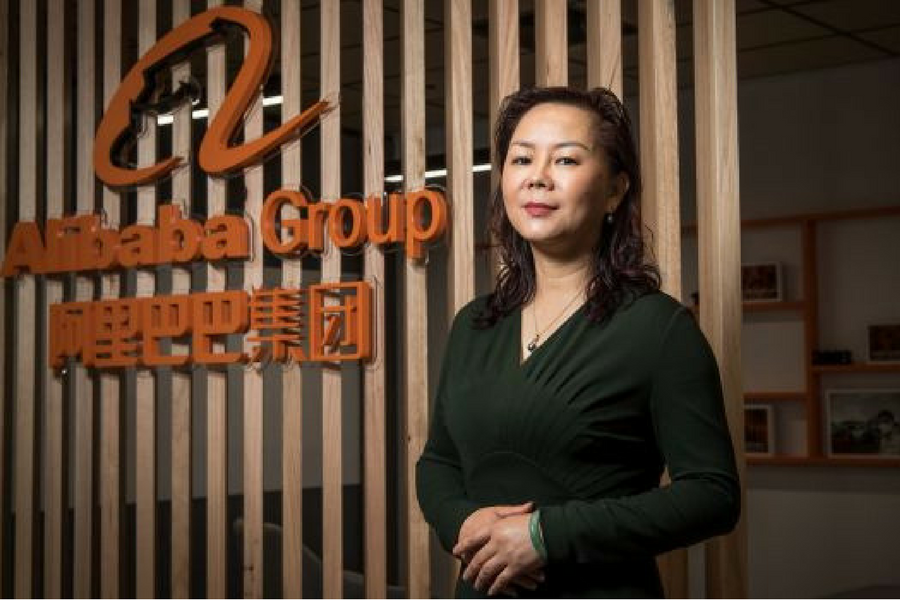Tmall Global, Alibaba Group’s international business-to-consumer marketplace, has announced that it is partnering with Chemist Warehouse, Blackmores, Swisse and Sanofi Consumer Healthcare to boost the profile of health products within the Chinese market.
Coming together to sign memorandums of understanding (MOU) in Melbourne late last week, Maggie Zhou, Alibaba Group’s managing director for Australia and New Zealand, said the agreement would be key in leverage Australia’s “enviable reputation” amongst Chinese consumers.
“The products that are made and manufactured in this country are perceived to be clean, safe and healthy,” she said.
“By working together to promote our lifestyle and national identity, Australian brands will move a step closer to reaching their export potential in China. Australia is the first country to collaborate with like-minded health companies and this model will be closely watched by all of Tmall Global’s markets.”
Under the MOU, the four companies will collaborate with Tmall Global to improve marketing capabilities and production traceability, a move designed to create new sales channels and help the brands reach China’s growing middle class.
Not the first time for Alibaba to set its eyes on improving the traceability of products sent to China, earlier this year saw the company partner with Australia Post to combat the sale of counterfeit Australian food.
The businesses announced that they would work together to create a platform that will harness modern technologies to track food “from paddock to plate”, a system which will aim to reduce the risk of fraud and ensure Australia remains a trusted exporter of high quality local food. Professional services firm PwC is also serving as an advisor to the project.
A story covered by the ABC highlighted food fraud as a “national issue” for Australia, with incidences of counterfeit food spanning across local cherry, meat and alcohol products.
John Houston, CEO of global anti-counterfeiting and brand protection firm YPB System, told the ABC that Australia’s quality food products form a substantial portion of the global counterfeiting industry, the worth of which he estimated at $1.7 trillion.
“Australian products are highly prized because they come from a country where the provenance of goods is not in question,” he said.
“What I would say to any Australian food exporter to China is, the first thing you need to think about is that as soon as your product becomes successful over there someone will try to copy it or steal your brand.”
Improving traceability was an important factor for Blackmores in signing the MOU, according to the company’s managing director, Asia, Peter Osborne.
“This partnership supports our long-standing commitment to quality and traceability and will reinforce Chinese consumer’s trust in the efficacy of our products. We look forward to working closely with Tmall Global and the other partners to promoting the safety, quality and world leading standards of Australian healthcare products to China,” said Osborne.
Chemist Warehouse’s cofounder Damien Gance, said that Tmall Global was a “fantastic” way of the company to sell its healthcare products into China.
Alongside signing the MOU, Chemist Warehouse also revealed that it would be renewing its strategic agreement with Alibaba, which sees both companies collaborating to increase the adoption of health products online.
Australian-made and manufactured health and nutrition supplements rank amongst the top performing categories on Tmall Global’s platform, with Australia ranking overall as the fifth highest gross merchandise volume country.
The rapid uptake of Australian products amongst Chinese consumers has been an area identified by a number of local startups, including ecommerce marketplace DaigouSales.
The platform allows Australian merchants to sell into the Chinese market, integrating with Chinese social media platform WeChat to offer an ecommerce marketplace of Australian brands.
DaigouSale’s founder, Mathew McDougall, accounted the increased interest from China in international products to a “widespread” fear felt by Chinese consumers about the quality of food and fake products.
The result is a growing portion of the Chinese middle class prepared to pay a premium to ensure that a product is genuine.
“The Chinese market is different in almost every conceivable way,” said McDougall.
Vitamins, skin care, infant formula and cosmetics were the products with the highest uptake on Daigou sales, with McDougall adding that he was seeing increased demand in baby clothing and some grocery lines.
Also noticing the “explosion of demand” for overseas products and services in China was Nicolas Chu, cofounder of Sinorbis, a cloud marketing platform helping Australian businesses develop an online presence in China.
To secure trust from consumers in China, Nick Mann, Swisse Wellness’ sales director ANZ, said that Australia’s regulatory system would be key.
“Australia’s complementary medicines industry is backed by a regulatory regime that is regarded as one of the strongest in the world. Products are manufactured to a pharmaceutical standard under Good Manufacturing Practice, and strict safety and quality regulations are enforced by the Therapeutic Goods Administration,” he said.
“Swisse Wellness is very excited about the significant opportunities the partnership could bring to Swisse and the sector.“
Image: Alibaba – Maggie Zhou. Source: Supplied.




















Trending
Daily startup news and insights, delivered to your inbox.